Why Perfectionists can get upset Over the
Smallest Things And What you Can Do?
Learn Strategies to Overcome Perfectionism Today!

**************************************
Join me for an upcoming Workshop:
Can't make these Workshop dates? Join me for a self-paced on-demand course:
Sue Larkey On-Demand Workshops
**************************************
Discussed in this Episode:
✅ 5 Categories of ‘things’ that can upset perfectionists
✅ The underlying reasons why Neurodiverse students are upset by small things
✅ What to do
✅ Why knowing how long is so important
✅ Range of Visuals to Use
Harness Strategies to Overcome Perfectionism Today!
WHY Students with ASD don’t want to ‘Have a Go’ and How you Can Help?
A key part of increasing participation and engagement is getting students to “have a go” BUT……..have you ever noticed making mistakes is particularly frustrating for students with ASD? If so, learn these Strategies to Overcome Perfectionism Today!
This is because people with ASD often have difficulty with “cognitive flexibility” in other words they have a one track mind, their thinking tends to be rigid and not adapt to failure or change. One of the characteristics associated with this inflexibility is being less able to learn from mistakes. Parents and teachers report that the child continues to persevere with an activity, having a mental block and not changing their strategies even if they are not working. An often heard phrase is “he doesn’t like making mistakes” or “he doesn’t learn from consequences”. (Tony Attwood, Asperger’s Syndrome: A Guide for Parents and Professionals, page 117)
When we are trying to engage children or encourage them to participate this “inflexible thinking” can be a barrier to learning. The challenges of “inflexible thinking” are students can make the same mistakes over and over, can’t see an alternative option or opinion, or get frustrated when corrected as they believe they are correct. There are a range of strategies we can use to support understanding and therefore encourage trying ‘new activities’ or ‘having a go’.
Insights from My Wonderful Facebook Community
1. Anything can Change Daily!
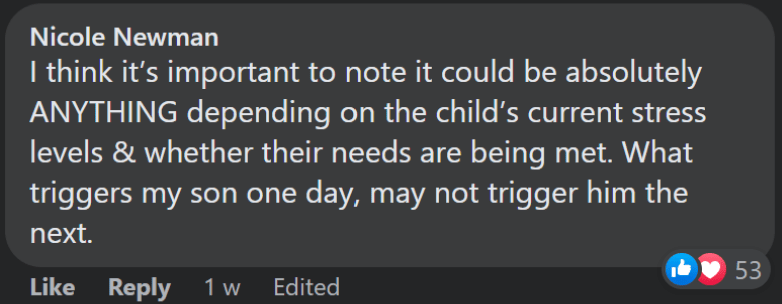
2. Things not the way they usually are
E.g. at lunch inside play as raining, small changes like wrong pen, smudge on eraser, pencil lead breaking. things not quite ‘right’
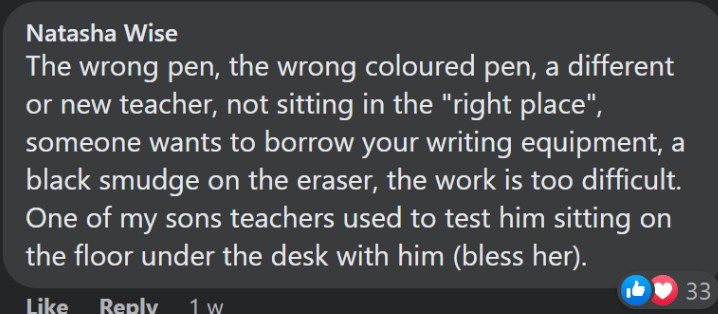

3. Perfectionism, wanting everything perfect. (High standards for themselves)
- Letter touching line or writing perfect shape.
- Colouring outside of line
- Narrative writing not fitting into suggested number of lines
- Spelling mistake
- ‘Wrong’ answer when they believed correct
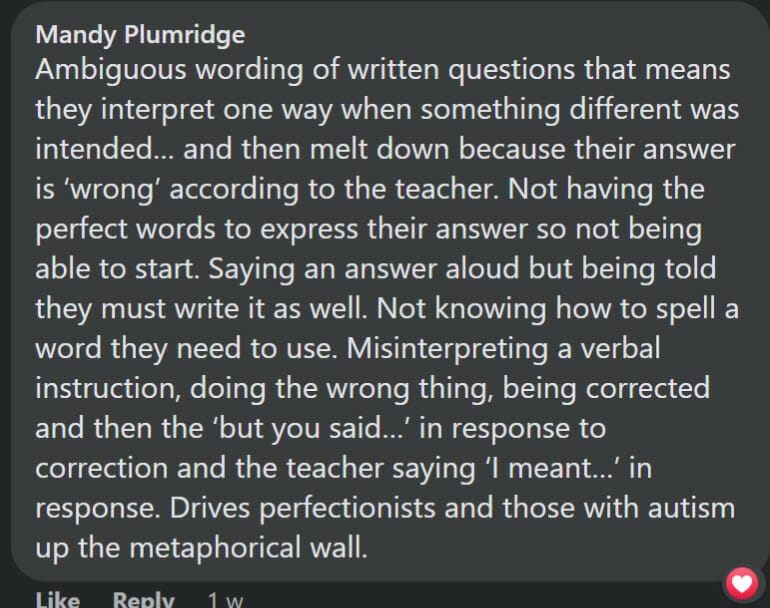
4. Other students! I like to call Class ‘Police Officers’
- Interrupting,
- Not following the rules
- Other children ‘pushing in’
- Other children touching your things
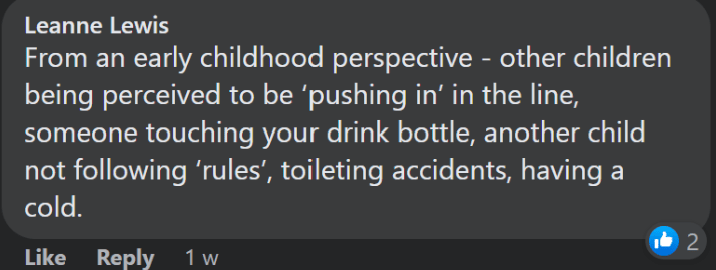
5. Sensory upsets
- Paper sticking to hand
- Flicker of fluro lights
- Clicking Pens
- Creaky Spot on Floor
- Desk Wobbly
- People Breathing too loudly
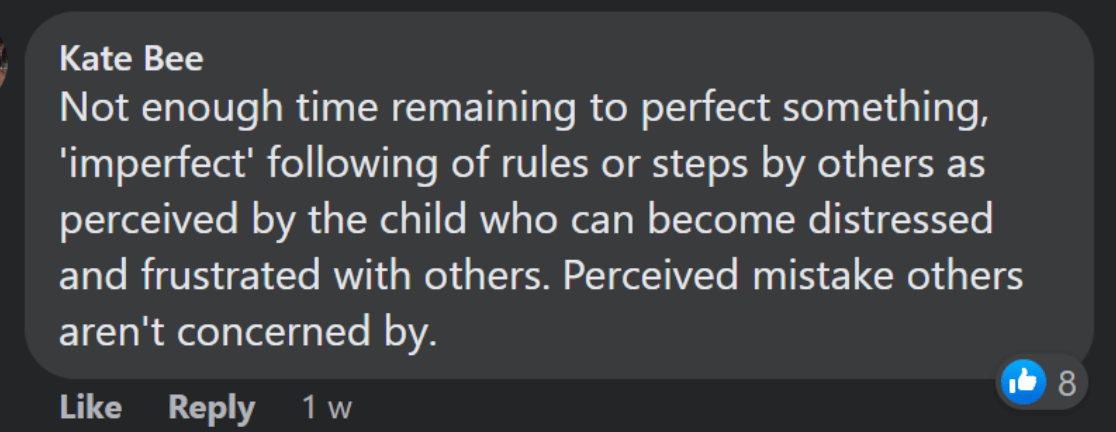
More Strategies to Overcome Perfectionism!
- Break activities into small achievable steps.
- Use Social Stories to support understanding (i.e. in Developing Social Skills book “It is okay to make mistakes” page 72).
- Model making mistakes and how to correct (cross out, rub out, etc.)
- Tell what to do, not what not to do. Use positive phrases rather than negative. For example: put your hand up vs don’t call out (see opposite).
- Using range of prompts to support learning.
- Reward having a go.
- Instead of putting an “X” for mistakes, try putting a circle around the mistake and call it “learning”.
- Model your own thinking when things go wrong – “Oh I went the wrong way, what can I do now?”
- Show how to be calm first when a problem happens
- Practice and Model flexible thinking
- Talk about other peoples perspectives. “Why do you think the person pushed in?” “Why do you think Mum set a different flavoured snack?”
Top selling books for practical strategies
by Sue Larkey | A MEGA book full of my most Popular Blogs, Tip Sheets and more in one easy to use reference! This book is for all ages and stages, for teaching neurodiverse students including Autism Spectrum, ADHD, ODD, PDA and more!
Includes index to quickly look up Topic & Tips, as well as ideas for all parts of teaching and looking after neurodiverse children. 142 pages of full colour Strategies & Tips at YOUR Fingertips.
This is the perfect book for busy teachers, teacher aides, parents and carers looking for quick tips, strategies, and solutions. Topics covered include:
- 18 Ways to Set Up a Classroom
- Types of Adjustments/Accommodations
- How to Engage Disengaged Students with Autism ADHD & Neurodiversity
- Tips to Keeping on Task
- Task Analysis
- Handwriting For Students with Autism Spectrum Why Kids on the Spectrum are more likely to be
- Perfectionists & What you can do to Support Them Top Tips for Using Time Timers
- Minimising Stress Around Timers
- The Early Years
- Your Words Matter
- The One Thing I Wish I Knew Years Ago
13 in stock
Developing Social Skills | by Sue Larkey & Gay von Ess | code: B18 | A starting point for teaching and encouraging social interactions and skills for children with an autism spectrum disorder and other developmental delays. It is a useful concrete and visual resource which when coupled with videoing, role playing and modeling will help young primary school age children with an autism spectrum disorder to better understand the social world around them. This book includes hundreds of ideas, social stories and worksheets. It is a great resource full of time savers for home and school.

BOTH BOOKS. Two fantastic companion guides with no repetition or overlap between the two book. Hundreds of ideas and practical strategies for teachers and teacher assistants to try. GREAT FOR TEACHERS TOO!
UNDERSTANDING AuDHD: Teaching & Supporting Students with Autism and ADHD Co-occurrence
✅ 2 Hours, 8 Lessons
✅ 6 Weeks to Complete 🎁 Bonus 6 Months Access (available until 28 Oct 25)
✅ Certificate of Completion
✅ Lesson Transcripts
 2 Hours
2 Hours

$149

Are you?
- Passing on a student with Neurodiversity to another educator next year
- Do you know a student who will be changing teachers, classrooms, or school settings in 2026
- Planning your staff, classes for 2026
Now is the time to prepare for 2026.
By joining my course, you will get the knowledge, skills and strategies to set yourself and your students up for success in 2026.
If there's even a remote possibility of having a child with Neurodiversity in your classroom next year, join me to prepare now.
Training in the first term often presents challenges:
- Don't want a day out for training when setting up class at the start of the year.
- Students with neurodiversity may start off dysregulated because the necessary structures and strategies are not yet in place.
- Educators find themselves playing catch-up while addressing 'behaviours'.
- Many educators feel overwhelmed.
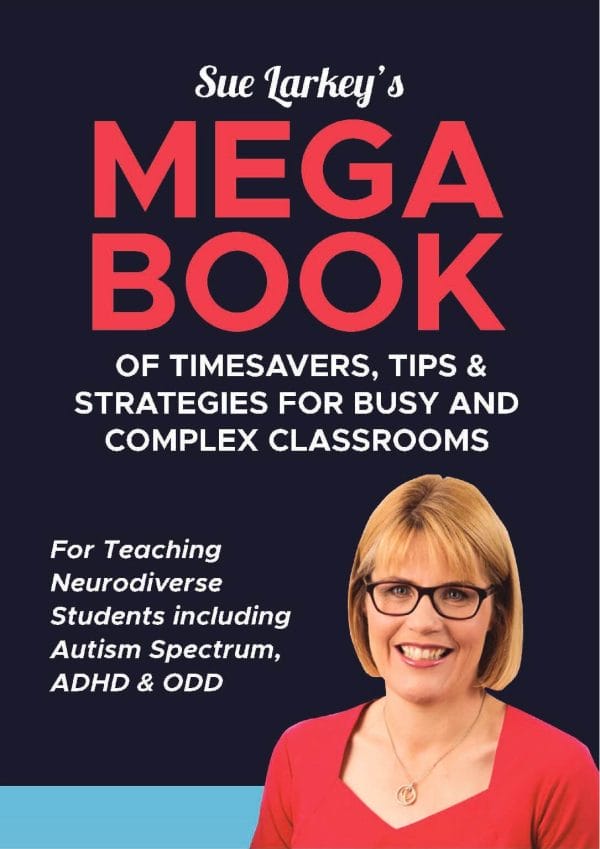
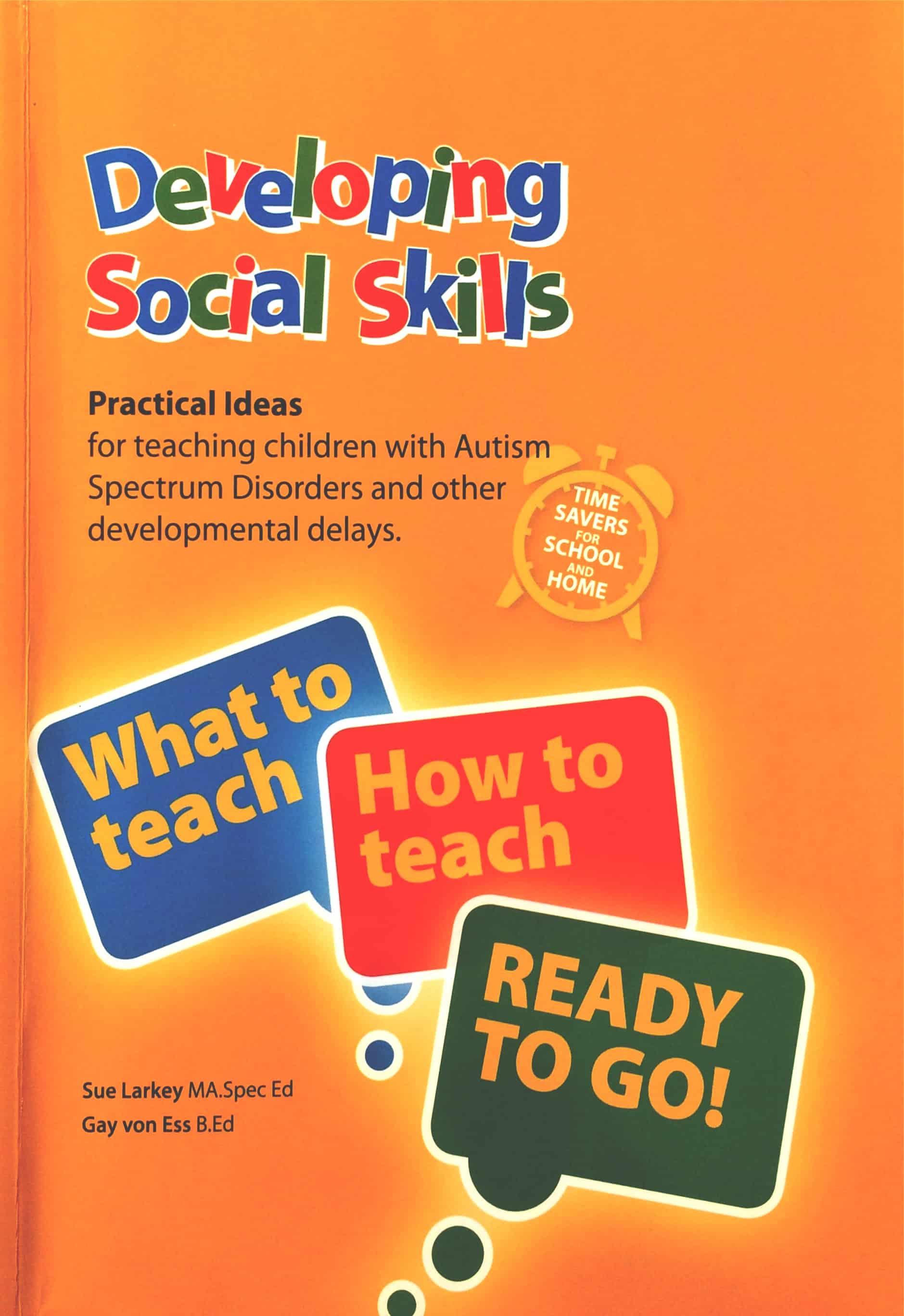
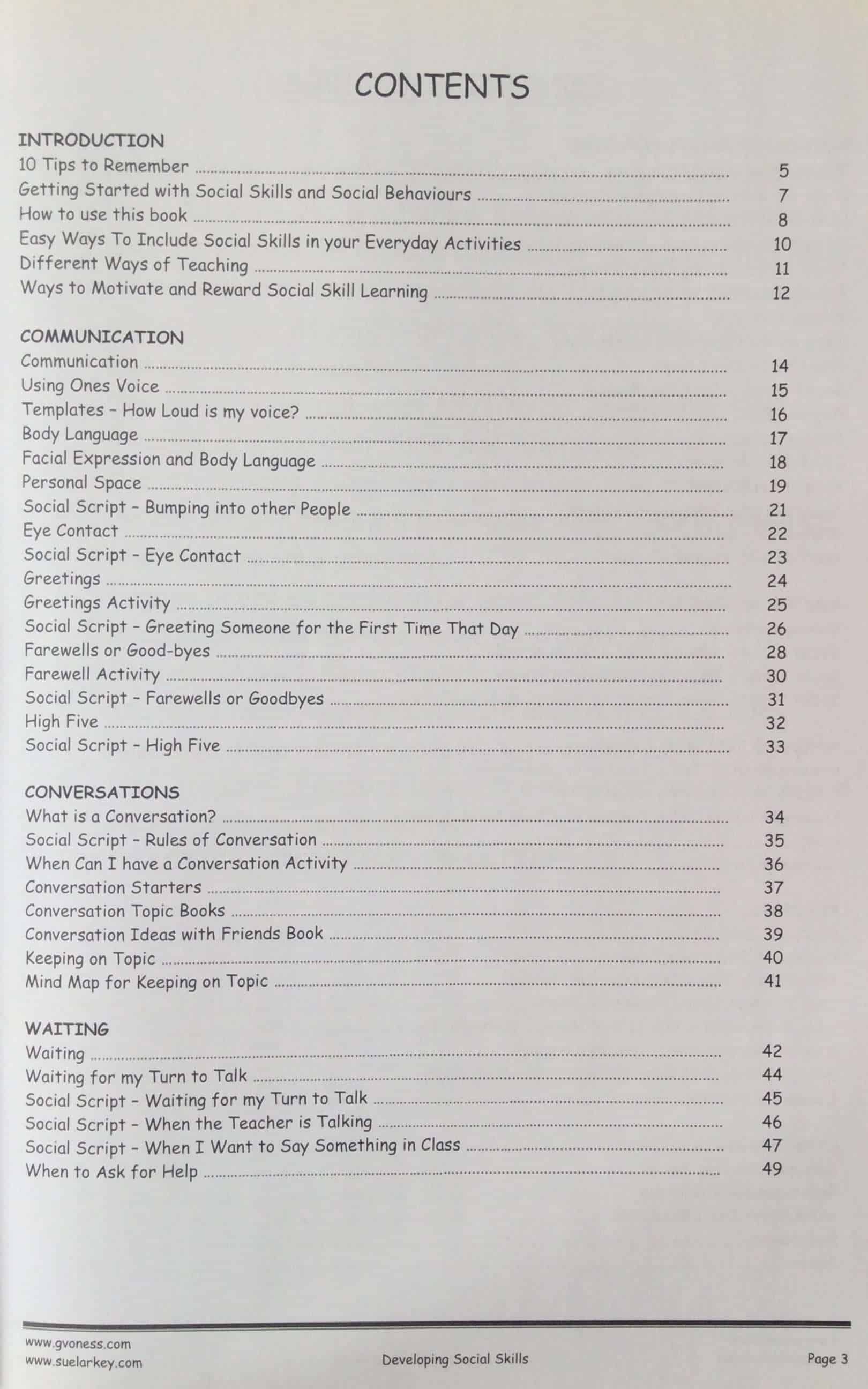
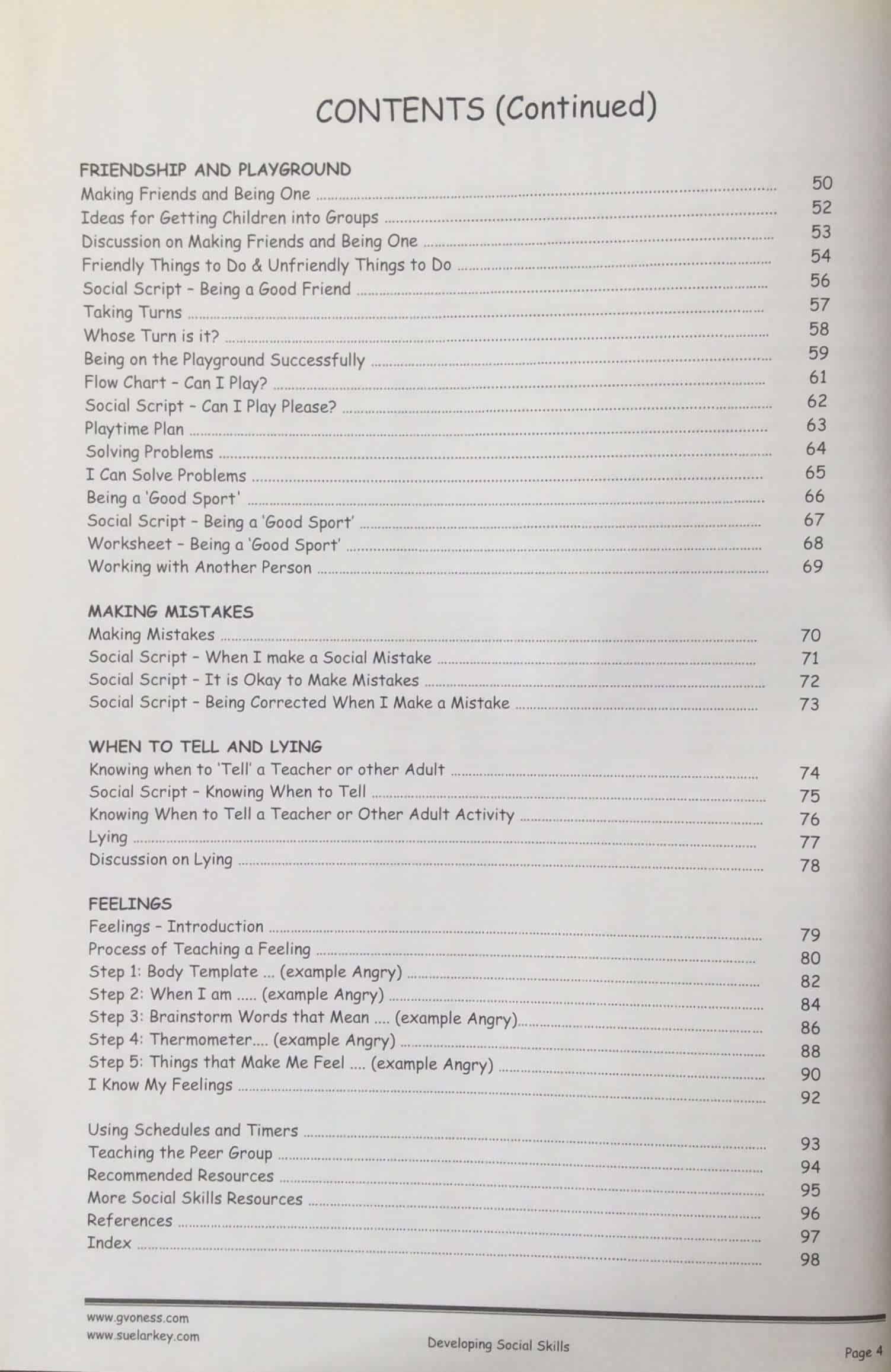
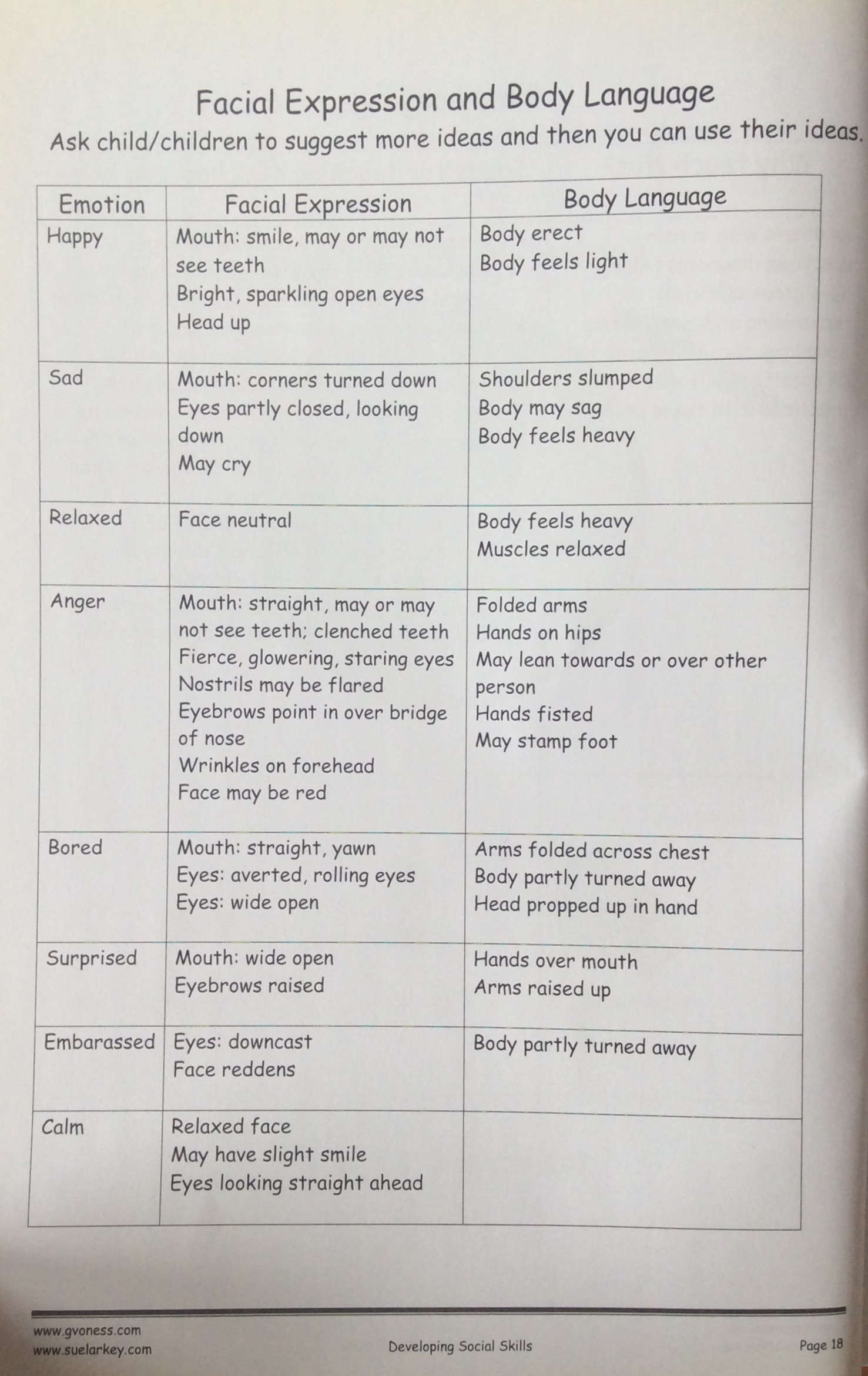


 2 Hours
2 Hours


 Sorry we no longer ship items outside Australia. Please consider the digital versions of Sue’s Books –
Sorry we no longer ship items outside Australia. Please consider the digital versions of Sue’s Books – 